ORGANIZERS |

Jeffrey Alexander is Lillian Chavenson Saden Professor of Sociology at Yale University and the founder and co-director of Yale’s Center for Cultural Sociology. Among his recent writings are The Dark Side of Modernity (2013), Obama Power (with N. Jaworsky, 2014), and The Crisis of Journalism Reconsidered: Economy, Technology, Culture (ed. with E. Breese and M. Luengo, 2016). |
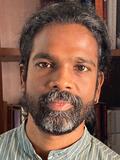
Suryakant Waghmore is Professor of Sociology at IIT-Bombay. He is author of Civility against Caste (2013) |
AUTHORS |

Hugo Gorringe is Senior Lecturer in Sociology at the University of Edinburgh, Scotland. His research in India focuses on the socio-political mobilisation of Dalits (ex-Untouchables) and their struggle to achieve equality and deepen Indian democracy. He has written two books on Dalit politics in South India: Panthers in Parliament: Dalits, Caste and Political Power in South India (OUP, 2017) and Untouchable Citizens: Dalit Movements and Democratization in Tamil Nadu (SAGE, 2005). He is the co-editor, with Suryakant Waghmore, of Civility in Crisis, Democracy, Equality, and the Majoritarian Challenge in India (Routledge, 2021) and, with Waghmore and Jeffery, of From the Margins to the Mainstream: Institutionalising Minorities in South Asia (SAGE, 2016). He has also published numerous articles and chapters on identity, violence, space, caste and politics. He is on the editorial board of Contemporary Voice of Dalit. |
 Karthikeyan Damodaran completed his PhD from the University of Edinburgh, his research focused on ‘Caste processions and commemorations in South India.’ His research and teaching interests include, identity politics, social movements, caste, space, films and urban culture. It intersects South Asian Studies, Sociology, Social Anthropology, Cultural Studies and Media Studies. He was previously a correspondent with The Hindu Newspaper and carries a 7-year experience in Journalism. Karthikeyan Damodaran completed his PhD from the University of Edinburgh, his research focused on ‘Caste processions and commemorations in South India.’ His research and teaching interests include, identity politics, social movements, caste, space, films and urban culture. It intersects South Asian Studies, Sociology, Social Anthropology, Cultural Studies and Media Studies. He was previously a correspondent with The Hindu Newspaper and carries a 7-year experience in Journalism.
Karthikeyan is the author of numerous sole and joint authored articles on Dalits, Dalit politics, Tamil cinema and Dravidian politics for a range of outlets including Economic and Political Weekly, The Wire, The Law School Policy Review, The NewsMinute, Firstpost, Asia Dialogue, NDTV.com, Indian Express, The Hindu, and Frontline. |

Kartikeya Saboo is an ethnographer of the United States. Currently, he is studying political persuasion, populism, and post-industrial prospects of economic growth, community health, and justice in a semi-rural community of Kansas. He is also building a field school of applied anthropology. His first project examined the impact of the financial crisis and Great Recession in Northeastern U.S., where he investigated the political, economic, and symbolic uses of the Black body. Before becoming an anthropologist, he was involved in large scale innovations in financial exclusion for the poor in India, which led to national policy change and have been replicated in other parts of the world. |
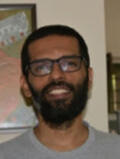
Ramesh Bairy is Associate Professor of Sociology at IIT-Bombay. |
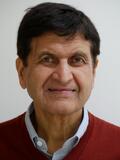
Krishan Kumar is a University Professor and William R. Kenan, Jr., Professor of Sociology at the University of Virginia. He was formerly Professor of Social and Political thought at the University of Kent at Canterbury, UK. He received his undergraduate education at the University of Cambridge and his graduate education at the London School of Economics. Among his publications are Utopia and Anti-Utopia in Modern Times(1987), 1989:Revolutionary Ideas and Ideals (1991), The Making of English National Identity (2003), From Post-Industrial to Post-Modern Society, 2nd ed. (2005), Visions of Empire: How Five Imperial Regimes shaped the World (2017), and Empires: A Historical and Political Sociology (2021). |
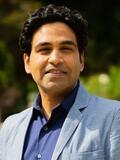
Gaurav J. Pathania is an Assistant Professor of Sociology and Peacebuilding at the Eastern Mennonite University in Virginia. Gaurav has formerly served as a visiting scholar to the University of Massachusetts, Amherst, and as a research associate to the University of Southern California. His research is located in the area of social movements, student politics, sociology of education, sociology of caste and mental health. His current research in cultural sociology critically examines contemporary identity movements in India and among the diaspora. Gaurav has recently authored his first book, The University as a Site of Resistance: Identity and Student Politics (Oxford University Press, 2018). His latest paper “Racialization of Caste” is published in the Year-Book on Education 2023. Gaurav is currently an assistant editor of South Asia Research, a journal published from School of Oriental and African Studies (SOAS)- University of London. Gaurav is also an anti-caste writer, poet and activist, and won the national poetry award for 2016 organized by the Poetry Society of India. His anti-caste poetry appears in J-Caste journal published by Brandeis University. |

Ajay Gudavarthy is currently Associate Professor, Centre for Political Studies, Jawaharlal Nehru University. He is currently Associate Member, Institute for Humanities, Simon Fraser University, Canada. He was earlier Visiting Professor, Centre for Modern Indian Studies, Gottingen University, Germany (2014); Visiting Fellow, Centre for Citizenship, Civil Society and Rule of Law, University of Aberdeen (2012); Visiting Faculty, Goldsmith College, UCL, London (2010); Charles Wallace Visiting Fellow, SOAS, London (2008).His published work includes, Politics of Post-Civil Society (Sage, 2013), Maoism, Democracy and Globalization (Sage, 2014) and India after Modi : Populism and the Right (Bloomsbury, 2018) and edited books include, Re-Framing Democracy and Agency (Anthem, London, 2012); Revolutionary Violence versus Democracy (Sage, 2017) and Secular Sectarianism: Limits of Subaltern Politics (Sage, 2019). His forthcoming book is titled Politics, Ethics and Emotions in `New India (Routledge, 2022). He is a regular contributor to leading news dailies in India that include The Hindu, The Indian Express, The Telegraph, The Wire and Newsclick. He has appeared on and shared his views with various international print media and news channels including Channel News Asia (Singapore), Al Jajeera, The Conversation, South China Morning Post, BBC, The Independent and The Time Magazine, Friday Times, Khaleej times, The Dawn, among others. |
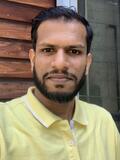
Raju Chalwadi is a doctoral candidate in the Humanities and Social Sciences Department at IIT, Bombay (India). His research interest falls at the intersection of urban studies, Dalit religion and caste studies. For his doctoral work, he is using a mixed-methods approach to investigate the urban career and religious life of north Indian Dalits in Mumbai. He has published book reviews in Social Change and Journal of South Asian Development. Raju is a 2022-23 Fulbright Fellow and is currently affiliated with University of California, Santa Cruz. |
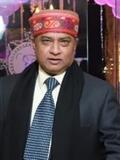
Prof. Vivek Kumar (Ph.D) is Professor of Sociology, Public Intellectual and Chairperson of the Centre for the Study of Social Systems, School of Social Sciences, Jawaharlal Nehru University, New Delhi. Prof Vivek is also co-ordinator of Global Studies Programme (JNU) run with 5 universities of the world. He is also Ambedkar Chair Professor (i/c) in Sociology, instituted by Ministry of Empowerment and Social Justice, Government of India. As a recipient of Fulbright Teacher’s Fellowship, Prof Kumar has been Visiting Associate Professor in the Department of Sociology, Columbia University, New York, and as a DAAD –UGC fellow a visiting faculty at the Humboldt University, Germany. His publications include, Caste and Democracy in Indian (2014), the edited volume ‘Dynamics of Change and Continuity in the Age of Globalization (2009), India’s Roaring Revolution (2006), and Dalit Leadership in India (2002). His seminal articles include, ‘How Egalitarian is Indian Sociology’? (2016) and Inequality in India: Caste and Hindu Social Order (https://www2.hu-berlin.de/transcience/Vol5_No1_2014_36_52.pdf).. He completed a research project, “Social Status and Social Attitudes in India: A Study of Indian College Students,” with Harvard University, and UBC, Canada. His areas of specialization include, Methodology of Social Sciences, Social Stratification, Sociology of South Asia and Dalit Studies. He has delivered Ambedkar Memorial Lectures at UBC, Simon Frazer University, and Toronto University all in Canada. |

Giuseppe Sciortino Giuseppe Sciortino is a professor of sociology at the Università di Trento, Italy. His research interests include Social Theory, International Migration, and Cultural Sociology. He has recently edited The Cultural Trauma of Decolonization. Colonial Returnees in the National Imagination (with Ron Eyerman, Palgrave, 2019) and Populism in the Civil Sphere (with J.C. Alexander and Peter Kivisto, Polity, 2021). He is currently working, with Martina Cvajner, on a cultural history of the sexual revolution. |

Peter Kivisto Peter Kivisto is the Richard A. Swanson Professor of Social Thought at Augustana College and International Reader at the University of Helsinki’s Center for Research on Ethnic Relations and Nationalism (CEREN). He was until 2017 the Co-Director of the Research Laboratory on Transnationalism and Migration Processes at St. Petersburg State University. The Academy of Finland appointed him Finland Distinguished Professor at the University of Turku from 2008 to 2012, and he was awarded an honorary doctorate by the university in 2013. His research focuses on immigration, social integration, and civil society. Recent books include The Trump Phenomenon: How the Politics of Populism Won in 2016 (Emerald, 2017), The Cambridge Handbook of Social Theory, 2 volumes (Cambridge University Press, 2021) and Populism in the Civil Sphere (Polity Press, 2021, with Jeffrey C. Alexander and Giuseppe Sciortino). He has served on the Council of the American Sociological Association and as President of the Midwest Sociological Society, as well as serving as Editor of The Sociological Quarterly. He is currently the Series Editor of Anthem Press’s Key Issues in Modern Sociology. |
COMMENTATORS |

Carlo Tognato is currently Research Fellow at the Center for Holocaust and Genocide Studies, University of Minnesota. He was for two years Senior Policy Fellow at the Center for the Study of Social Change, Institutions and Policy (SCIP) of the Schar School of Policy and Government at George Mason University and before permanently relocating back to the US after spending 15 years in Colombia, he was for over a decade Associate Professor of the Department of Sociology of the National University of Colombia, Bogotá, and for four years Director of the Center for Social Studies at the same university. After working for over a decade on cultural economic sociology, since 2014 his research has almost exclusively focused on civil reconstruction and civil degradation. He has published a book on the influence of culture in central banking (Central Bank Independence: Cultural Codes and Symbolic Performance, Palgrave-Macmillan, New York, 2012). He has edited another on the influence of culture in urban policy (Cultural Agency Reloaded: The Legacy of Antanas Mockus, The President and Fellows of Harvard College, 2017). He has coedited with Jeffrey Alexander a third one on the cultural foundations of democratic life in Latin America (The Civil Sphere in Latin America, Cambridge University Press, 2018), a fourth one with Nelson Arteaga on cultural sociology in Latin America (Sociedad, cultura y esfera civil: Una agenda de sociología cultural, FLACSO Mexico, 2019), and a fifth one on civil courage (The Courage for Civil Repair: Narrating the Righteous in International Migration, Palgrave-Macmillan, New York, with Nadya Jaworsky and Jeffrey Alexander, 2020). |

Trevor Stack is the Director of the Centre for Citizenship, Civil Society and Rule of Law at the University of Aberdeen, UK. I came to Aberdeen as a Lecturer in Spanish and Latin American Studies in 2002, after completing a BA in History and a Masters in Social Anthropology at Oxford University, a PhD in Anthropology at the University of Pennsylvania, and having taught Anthropology at the University of St Andrews. I founded in 2009 and direct the inter-disciplinary Centre for Citizenship, Civil Society and Rule of Law (CISRUL), which focuses on the study of political concepts in the world. I have been doing research in Mexico since 1992, and I have also done research since 2008 in the East Bay Area of northern California. My research has focused mainly on aspects of citizenship and civil society. In 2016-19, I led a large RCUK-Newton team project on Societal Responses to Crime and Violence in Mexico (2016-19), and currently I lead a SFC-GCRF team project on Enhancing Collaboration in the Face of Crime and Violence. I have published Knowing History in Mexico: An Ethnography of Citizenship (U New Mexico, 2012), and edited the volumes Religion as a Category of Governance and Sovereignty (with Tim Fitzgerald and Naomi Goldenberg, Brill, 2015), Breaching the Civil Order: Radicalism and the Civil Sphere (with Jeffrey Alexander and Farhad Khosrokhavar, CUP, 2020), Engaging Authority: Citizenship and Political Community (with Rose Luminiello, Rowman & Littlefield International, 2021), and Citizens Against Crime and Violence: Societal Responses in Mexico (U Rutgers, 2022). |
PARTICIPANT/OBSERVER |

Shivani Choudhary is a PhD Candidate in Sociology and a Junior Fellow at the Center for Cultural Sociology. Her research aims to understand and explain the relationship between politics, culture and religion in society. Her work proposes elaborating on this connection by analyzing the symbolism and cultural politics of India’s right-wing Bharatiya Janata Party (BJP). Areas of Research Interest: Cultural Politics and Symbolism in India, Populism, Religious Nationalism, Civil Sphere and Cultural Associations in India, Performative Politics and Caste inequalities. She received her MPhil & M.A. in Political Science from Center for Political Studies, Jawaharlal Nehru University and her B.A. in Economics and Political Science from Lady Shri Ram College for Women, Delhi University. |